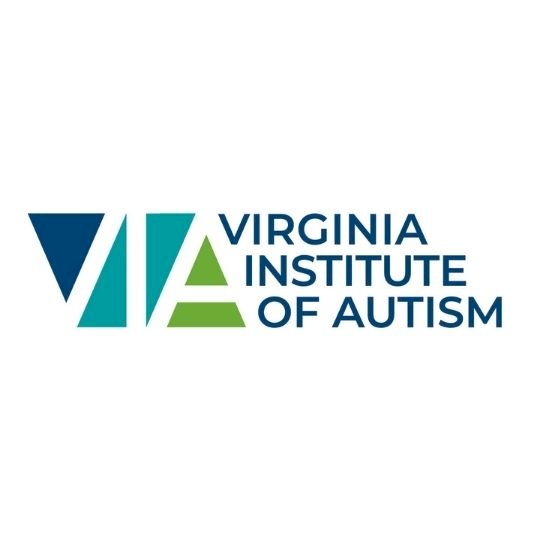The science of autism spectrum disorder (ASD) is not stagnant. The term is constantly being redefined, the methods for approaching it always evolving. As an organization which, above all, emphasizes education, the Virginia Institute of Autism (VIA) continues to keep pace with these developments. In doing so, VIA has decided to rename themselves to reflect their growth and inclusivity. It is now known as the Virginia Institute of Autism Centers for Neurodevelopment.
The Virginia Institute of Autism was founded by families. These families were tired of not having access to evidence-based programs that would allow their autistic children to thrive. They took matters into their own hands, creating a school where their children learned from ASD specialists in a congenial environment. VIA was a success in Charlottesville, becoming Southwest Virginia’s leading school for autistic individuals.
Eventually, a similar organization – Saint Vincent’s Home – was created in Roanoke. Inspired by VIA, the main objective of SVH was to bring services rooted in modern knowledge of autism to Roanoke. Both organizations became leading centers for autism education in Virginia. In 2023, they joined forces to better serve their communities, sharing resources and advocating for their students on a larger scale.
President and CEO of the Virginia Institute of Autism, Ethan Long, stated, “Ultimately, we came together because we realize that, collectively, we are stronger together.”
The primary services provided by VIA Centers for Neurodevelopment are targeted towards their autistic students. Many of their students who are autistic also have other neurodevelopmental disorders. They understand that an approach that works well on one student may not be best for another, and that their specific characteristics should not be ignored but rather be embraced.
“Knowing that each person is their own individual and highlighting the brightest parts of that individual is what we are all about,” Long explained. For these reasons, VIA Centers for Neurodevelopment have multiple education opportunities for their students. One of which is daily classes at one of their centers for education – the James C. Hornell school or the Center for Adolescent and Adult Autism Services.
Professionals at the center teach individuals between the ages of 6 and 22 using the principles of Applied Behavioral Analysis. The institute also offers services that assist in students’ education at traditional public schools. However, students are generally only permitted to attend public schools up to the age of 22 as well.
What happens after the student turns twenty-two? Autism does not suddenly dissipate during the threshold between childhood and adulthood. For this reason, the term “the autism services cliff” was coined. The cliff describes the sudden decline of services for autistic individuals after they reach their early twenties.
Public schools are required to offer a continuum of care to students with autism and other neurodevelopmental disorders, but most of these programs are not able to suit the needs of all of the individuals they serve. For this reason, VIA Centers for Neurodevelopment offers adult services as well. Still featuring individualized programs, the focus shifts towards helping their students adjust to the independence of adulthood.
Bethany Mazurek, Special Education Director at VIA, said, “to try to address that cliff, as we’ve grown over the years, we’ve continually added service programs. That includes employment services, and it includes adult day-placement programs for individuals with these unique needs so that they have a place to go and for them to get the support that they need from an employment perspective as well.” In essence, VIA Centers for Neurodevelopment want to help students of all ages and abilities thrive in their specific environments.
One of the most important factors in the success of autistic students is familial support. In some ways, other members of students’ households learn in tandem under VIA, becoming a student as well. For example, families may participate in group discussions with a professional in the field or learn approaches which could help them improve life at home.
On top of educating autistic individuals and their families, VIA Centers for Neurodevelopment is also dedicated to professional education. Experts within their schools and programs are students as well, having a plethora of opportunity for education in the newest methods related to ASD. VIA has worked with researchers at the University of Virginia in Charlottesville for this exact reason. They also devote days to continuing medical education, encouraging staff to learn along with their students.
What about in public schools? How do they guarantee that professionals within them are up to date on modern approaches towards ASD? Virginia Institute of Autism Centers for Neurodevelopment contributes to education of public-school teachers in the Southwest region of Virginia. They learn how to help their autistic students flourish within their classroom, creating a better experience for everyone at the school.
The final group that VIA Centers for Neurodevelopment educates is us! Communities across the world have subscribed to negative ideas about ASD that simply are not true. Many people do not treat autistic individuals with respect because of preconceived beliefs, especially within the workforce.
VIA assists their students in assimilating into their communities by helping them find work. Students partner with local businesses to earn money but also to slowly destigmatize autism and show that they are just as talented, if not more so in certain specializations, than their non-autistic counterparts. It’s time for autistic people – and anyone with a neurodevelopmental disorder – to be valued within their communities.
Why did the Virginia Institute of Autism rebrand to become the Virginia Institute of Autism Centers for Neurodevelopment? Because they recognize that every person has a distinct set of qualities which their education should reflect. People within their organization cannot be simply defined as autistic individuals but rather as complex people with unique traits. VIA is a bridge leading to greater autism awareness. Everyone at the VIA Centers for Neurodevelopment is a student who is involved in the progression of knowledge of autism.
– Sophia Stringer / The Roanoke Star

